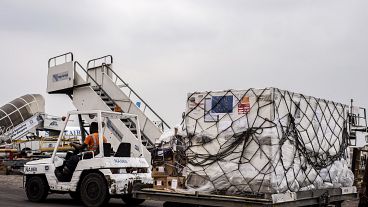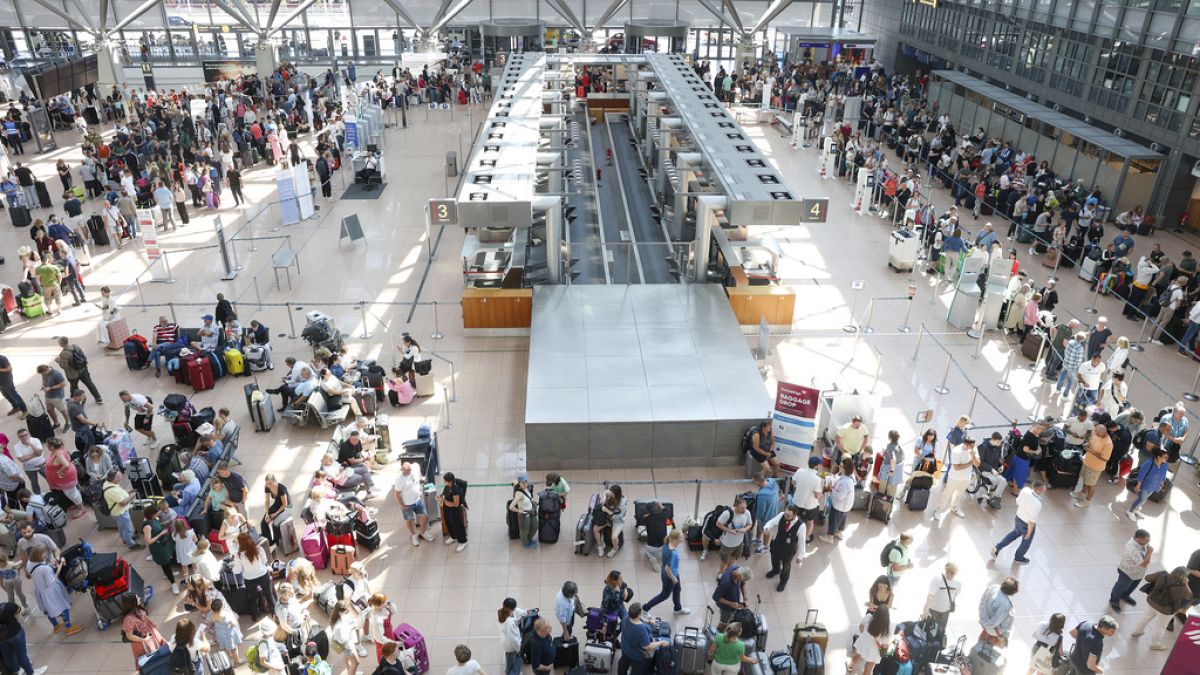When the technology says no, how can businesses stay resilient?
A software update from cybersecurity firm CrowdStrike caused chaos across the globe on Friday as computer systems were thrown into a blackout.
Flights were grounded, medical services were disrupted, and some broadcasters were forced off air. Many companies are still scrambling to reinstate services.
CrowdStrike said the outage's trigger was not a security incident or a cyberattack, but rather a faulty update to computers running Microsoft Windows.
"We're deeply sorry," CrowdStrike CEO George Kurtz told broadcaster NBC.
"That update had a software bug in it and caused an issue with the Microsoft operating system …We identified this very quickly and remediated the issue."
Cost for businesses
When blue error screens started popping up across offices earlier today, one immediate concern for businesses was productivity losses.
With services down, staff were unable to carry out their daily tasks, which ultimately costs money if the work must be done at a later date.
Programmes affected by the blip included a range of Microsoft 365 products. These are used by an estimated 95% of Fortune 500 companies.
With deadlines and meetings pushed back, company-client relationships were also on the line. In order to reassure customers, a number of firms released statements earlier today.
Sky News, a UK broadcaster, told the public that they were "working to restore services as quickly as possible" after their programming was cut on Friday morning. Berlin's Brandenburg airport said there would be "delays to check in". Similar warnings were sent out by emergency services, medical practices and retailers.
Michelle Ovens CBE, Founder of Small Business Britain, told Euronews that the impact of major outages can be "extremely costly" for small firms.
She advised businesses to be "open and transparent with customers in the event of an IT issue, and always maintain clear communication with them about how affected your systems are and how long you expect the issue to persist".
A business' reputation is likely to take even more of a hit if the problem is less widespread, as clients will be less prone to believe the issue is beyond the control of the firm they are dealing with.
The importance of a plan B
As well as giving tips on managing communications, Michelle Ovens told us that "small business owners should always have a failsafe".
In the event of a technology outage, it is not just productivity that is lost, but potentially sales as well.
"Make sure to back up your files on more than one platform regularly, and have an alternative payment method ready," Ovens said.
This was a sentiment echoed by Tina McKenzie, Policy and Advocacy Chair of the UK's Federation of Small Businesses.
"[Friday’s crash] highlights the importance of having a business continuity plan to manage unexpected disruptions. Such plans help businesses deal with unforeseen events like pandemics, flooding, natural disasters, and of course, technology outages."
Data risks
So far, it doesn’t seem as if there is a risk of a data breach as a result of Friday's crash. This is where confidential information is obtained by unauthorised individuals.
Even so, Nishanth Sastry, Director of Research of the Department of Computer Science at the University of Surrey, told Euronews: "you could see fraudsters and criminals using a vector such as this outage to threaten to bring down operations of businesses."
This makes it more important than ever for firms to maintain the resilience of their IT systems.
Guillermo de Haro, Vice dean of the School of Science and Technology at IE University in Madrid, explained that "risk management is nowadays a growing discipline" and one that is boosted by artificial intelligence.
"AI and machine learning algorithms can analyse data from IT and other systems to predict potential failures before they occur, allowing for proactive maintenance and reducing the likelihood of outages," explained de Haro.
"In some case they can even take care of the detection, diagnose and respond to the incident automatically and in real-time."















